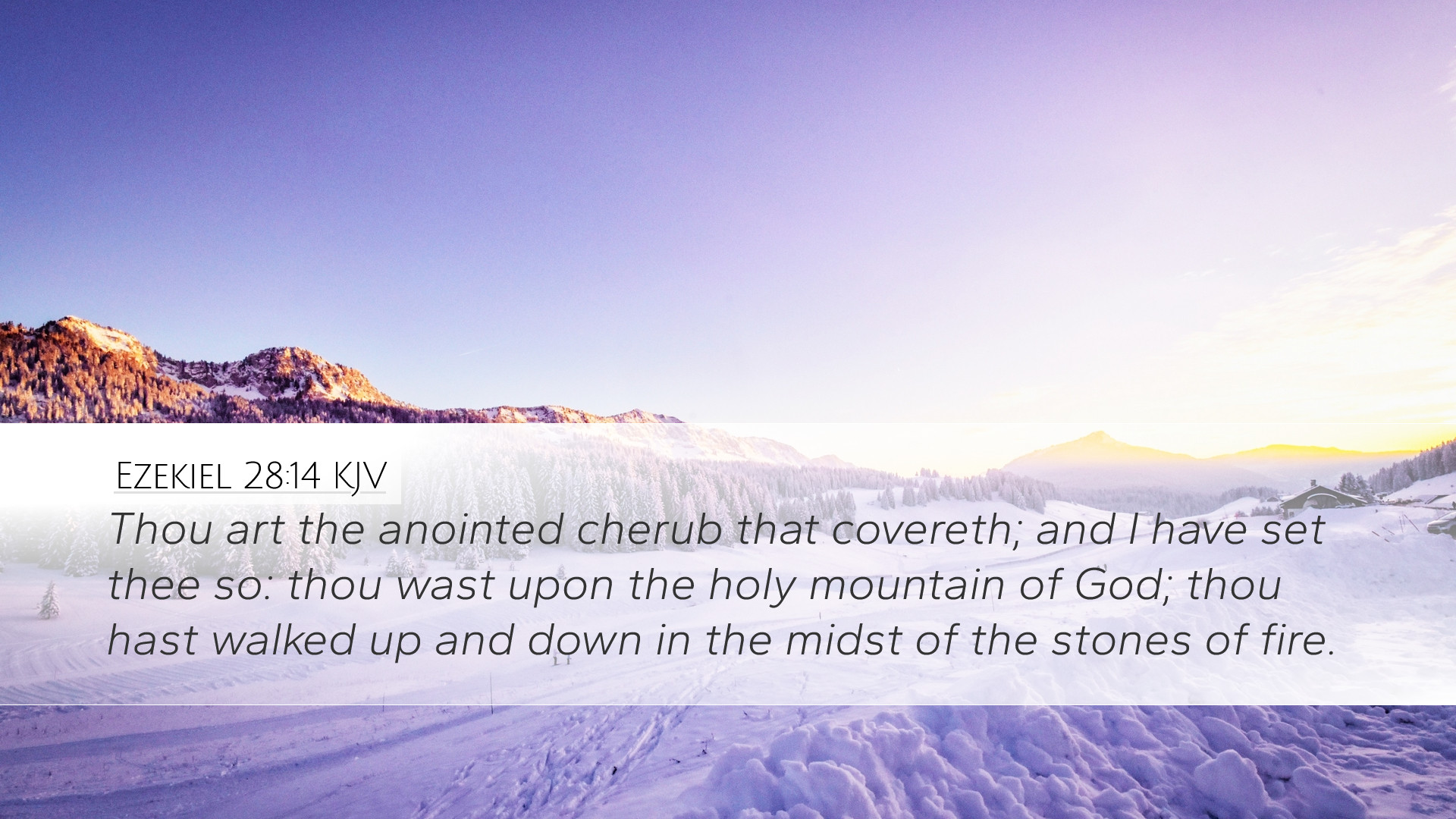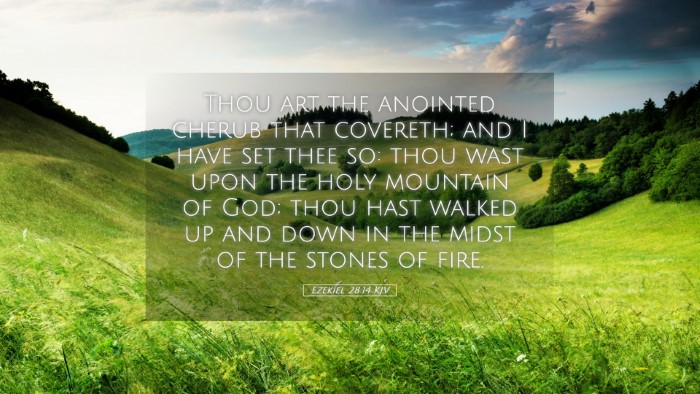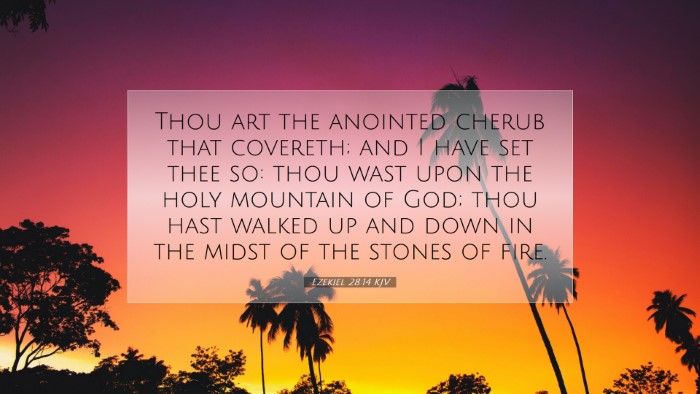Ezekiel 28:14 - Verse Analysis and Commentary
Ezekiel 28:14 (KJV): “Thou art the anointed cherub that covereth; and I have set thee so: thou wast upon the holy mountain of God; thou hast walked up and down in the midst of the stones of fire.”
Introduction
This verse is part of a larger context where God is pronouncing judgment upon the king of Tyre, often interpreted as a dual reference to both a human ruler and the spiritual forces behind his throne. The descriptions provided here reference a being of great stature and power, rich in beauty and wisdom, leading many to see parallels with the fall of Satan.
Contextual Analysis
Historical Context: Ezekiel writes during a time when Jerusalem was under threat from Babylon. The king of Tyre, representing the prideful nations, is addressed in a way that transcends his mere earthly reign. Ezekiel’s audience would have understood Tyre as both a literal nation and a symbol of the arrogance and idolatry that opposes God.
Theological Insights: The verse reflects themes of anointing, spiritual hierarchy, and divine judgment. The mention of the "anointed cherub" invokes imagery of a high-ranking angelic being who has fallen from grace. God’s judgment on Tyre parallels elements found within discussions of sanctification and degeneration in spiritual life.
Commentary Exegesis
Matthew Henry's Commentary
Matthew Henry views the references here as highlighting the extraordinary glory and splendor of the anointed cherub. He notes, “The great dignity which this angelic being had in relation to the Divine government, as a protector of His glory and worship.” Henry argues that the text serves as a reminder of the fallibility of even the most exalted beings when they choose pride over humility before God.
Albert Barnes' Commentary
Albert Barnes provides an analytical perspective, emphasizing the “anointed cherub” metaphor as indicative of a guardian or protector. He notes, “This phrase shows great honor and closeness to God; places in heaven are given according to the divine purpose.” Barnes points out that these lofty titles serve as a sobering contrast to the fall, implying the depths to which this being has descended due to pride and rebellion against God.
Adam Clarke's Commentary
Adam Clarke highlights the significance of the phrase “covereth,” interpreting it in terms of protection and intimate connection to God's presence. He writes, “This denotes not merely a position of honor but of responsibility in guarding God’s holiness and glory.” Clarke's view expands the understanding of the role of the cherub toward the multifaceted interaction between heaven and earth as they relate to humanity's relationship with God.
Symbolism and Meaning
The Cherub: The term “cherub” denotes a class of angels tasked with high and holy responsibilities. The use of “anointed” conveys God's choosing and equipping of this being for divine purposes. This underscores the theme that privilege within God's Kingdom comes with the solemn duty of faithfulness.
Stones of Fire: This phrase symbolizes purity, holiness, and the presence of God. The “stones” imply a foundation of truth and light, depicting the environment of divine glory the cherub was accustomed to. The contrast with Tyre emphasizes the spiritual bankruptcy that results when one turns away from God.
Theological Reflections
The Fall from Grace: The grandeur of the anointed cherub serves to amplify the tragedy of the fall that follows later in the passage. The deeper implication here is the prospect of redemption, for those who repent and return to the holiness of God can reclaim lost dignity.
Spiritual Warfare: The verse also engages themes of spiritual warfare, aligning with New Testament teachings on the unseen battle against the forces of evil. Understanding the complexity of the heavenly realm encourages believers to remain vigilant and humble, recognizing that pride leads to destruction.
Practical Application for the Church
- Guarding the Anointing: Just as the cherub had a divine mandate, believers today are called to guard their anointing and ensure their lives reflect a commitment to God's glory.
- Pride vs. Humility: This text serves as a caution against pride. Leaders and congregants alike should maintain a posture of humility, remembering the dangers associated with exalting oneself above God's purpose.
- Awareness of Spiritual Realities: Understanding the presence of spiritual beings can foster a community that actively engages in prayer and spiritual discipline, preparing for both individual and corporate challenges.
Conclusion
Ezekiel 28:14 presents a poignant reflection on the nature of divine authority and the consequences of its distortion through pride. It is a reminder that the glory bestowed upon individuals carries with it the weight of responsibility. Pastors, students, and scholars are encouraged to delve deeply into Scripture, seeking to understand the implications of heavenly realms and their intersection with earthly lives. Through this understanding, believers can navigate their spiritual journeys with wisdom, humility, and a renewed commitment to glorify God above all.


